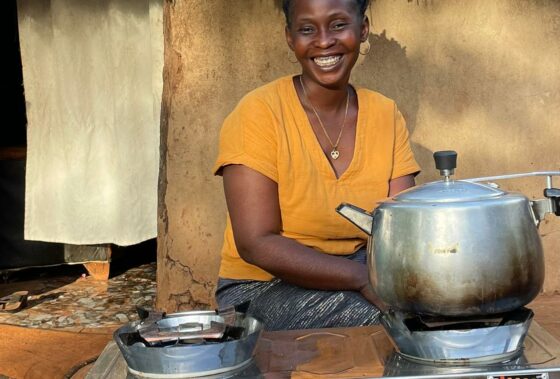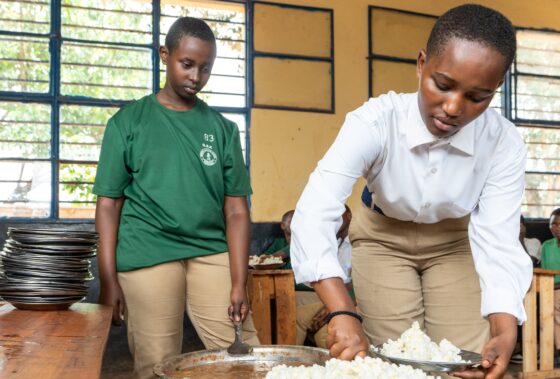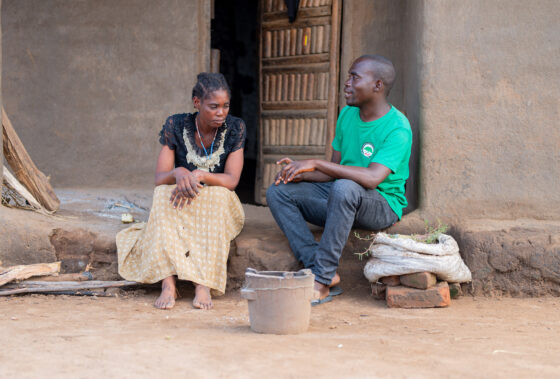In Uganda’s Kiryandongo District, a simple switch in cooking fuel is transforming lives. This is the story of Anneth — and how access to clean, affordable energy is bringing health, safety, and dignity to families like hers.
Kiryandongo District is one of Uganda’s poorest regions. It is home to more than 150,000 refugees and a growing host community of over 760,000 people. With limited resources and a rising demand, access to clean energy is still a critical challenge. Most households still rely on traditional cooking methods like firewood and charcoal – even though these fuels can harm health, damage the environment and put safety at risk.
In rural Uganda, many people cannot afford clean cooking. Household purchasing power in districts like Kiryandongo is estimated to be three to four times lower than the national average. For women, the burden is especially heavy: collecting firewood takes a lot of time, is dangerous, and often exposes them to harassment.
Clean, sustainable and affordable cooking
Fortunately, change is starting to happen. Anneth, a Ugandan woman living in Bweyale Town Council, shares a home with her husband and three children. Like many in her community, she depended on firewood and charcoal to prepare meals. But as firewood became harder to find and expensive, her family often faced difficult choices.
Sometimes, if we didn’t have firewood, we simply went to bed hungry.
Anneth, Uganda

Her husband, worried about costs and safety, resisted switching to gas. Their grass-thatched house seemed unsafe for modern cooking solutions, until they encountered a street demonstration for ethanol stoves.
This demonstration became a turning point. It showed the stove’s fast, smoke-free cooking and its safe use even in traditional homes. Through the promotional discounts provided under EnDev´s demand-side subsidies (DSS) project, Anneth and her husband were enabled to purchase the double burner ethanol stove. The project, funded by the Netherlands Ministry of Foreign Affairs, is part of a global component piloting innovative DSS mechanisms for vulnerable and/or displaced households and has transformed many lives like Anneth´s by bridging the affordability gap for clean energy products.
Transforming lives
For Anneth, the stove has brought more than convenience: it has given her time, safety and dignity.
Now, when I come home tired, I don’t have to search for firewood. I simply switch on the stove, boil water for tea, and heat food in minutes.
Anneth, Uganda
Anneth’s story reflects a wider change taking place in many families. They moved from using wasteful cooking methods, such as three-stone stoves, to cleaner, more efficient options like Improved Cookstoves (ICS), Electric Pressure Cookers (EPCs), and Ethanol stoves. These technologies not only save time and reduce stress, but also empower women to support their communities, spend more moments with their children, and care for their vegetable gardens. Knowing she no longer has to worry about the dangers of collecting firewood, brings Anneth peace of mind, joy, and the dignity of a safer, more enjoyable way of cooking.
Although Anneth was hesitant at first, she received training and support from the supplier. Her only concern now is maintenance. But she’s confident that repairs will be manageable. And if the stove ever breaks? “We’ll buy another one,” she says without hesitation. “Once you get used to it, you can’t go back.”
An inspirational example for others
Anneth’s story exemplifies the transformative power of access, awareness, and affordability.
Anneth’s kitchen is now a beacon of clean energy, inspiring neighbours to follow her example. What began as a simple switch has sparked a ripple effect—one that leads to healthier homes, stronger communities, and a more sustainable future.


